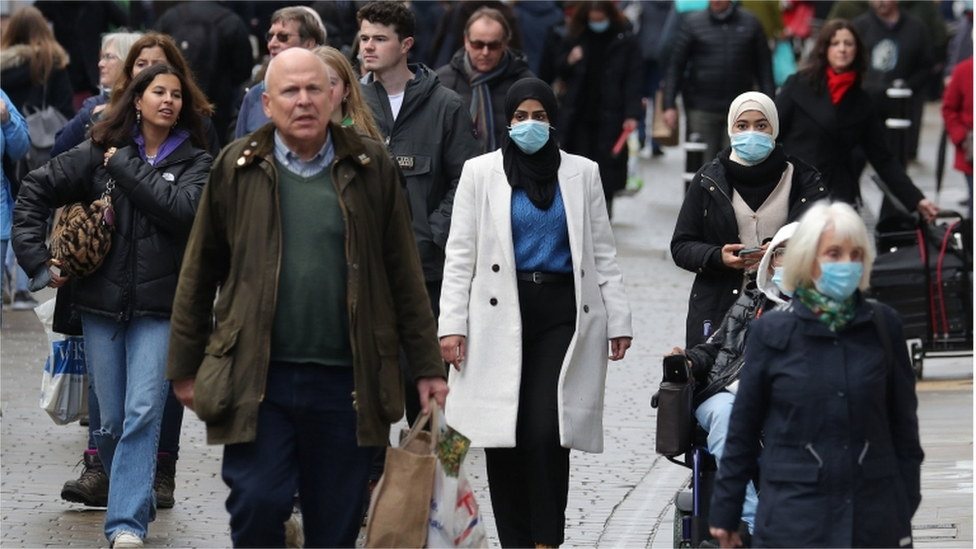Covid-19: West Midlands firms in 'impossible situation'
- Published
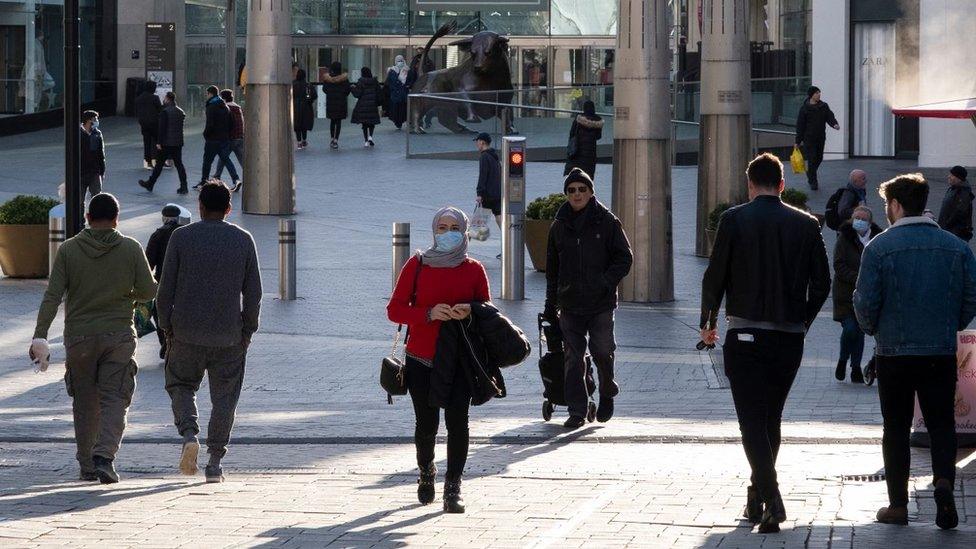
Although the vaccine provided a route out of restrictions by the spring, that meant another quarter of little or no trade, the Greater Birmingham Chambers of Commerce (GBCC) said
Businesses say they face an "impossible situation to survive" as the majority of the West Midlands prepares to move into tier four from Thursday.
Birmingham and the Black Country, Coventry, Solihull, Staffordshire, Stoke-on-Trent and Warwickshire were in tier three.
The Greater Birmingham Chambers of Commerce (GBCC) said greater financial support from the government was needed, and West Midlands Mayor Andy Street backed the call.
Wolverhampton has the highest rate of infections in the West Midlands area with 413.9 new infections per 100,000 people, in the seven days leading up to Christmas Day.
Sandwell had a rate of 337.3 over the same period, Birmingham 310.9, Walsall 297.4, Dudley 283.9, Solihull 247.7 and Coventry 239.8.
Mr Street said based on the rising numbers, the decision to enforce the toughest level of restrictions was understandable but still a "huge setback" and businesses - particularly the hospitality sector - needed more help.
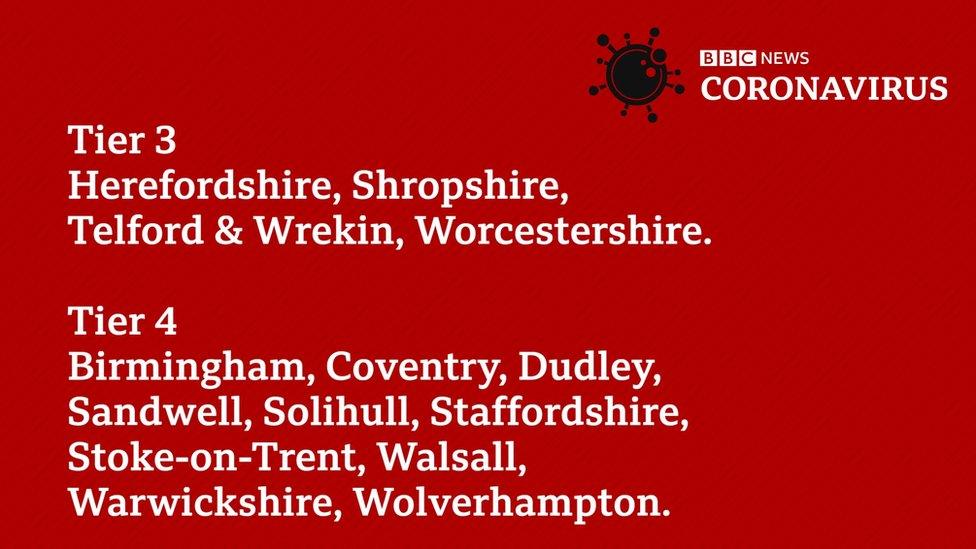
The West Midlands is part of a further 20 million people in England to join the toughest tier of restrictions from Thursday.
But Paul Faulkner, chief executive of GBCC, said he was "dismayed at the continuing lack of additional support for businesses, despite the continuing escalation in cases and measures".
Although the vaccine provided a route out of restrictions by the spring, he said that meant another quarter of little or no trade.
"It's an impossible situation for many businesses to survive without further support," he said.
"There's light at the end of the tunnel, but businesses need the government to keep laying down the tracks in order to reach it."
He said he wanted to see enhanced grant support for the most impacted businesses with higher overheads, and urgent action on VAT and business rates relief.

Analysis: BBC 5 live's Phil Mackie in Birmingham:
It was the news nobody wanted, but everybody expected.
Britain's second city and most of the rest of the Midlands will wake up tomorrow morning facing the strictest restrictions in tier four.
Infection rates are not as high as they are in London and the South East, but they have continued their inexorable rise. Lisa McNally, the Director of Public Health for neighbouring Sandwell, tweeted that positive cases had gone up 21% in seven days in Birmingham and the Black Country.
The University Hospitals Birmingham Trust has more than 500 Covid-19 patients in its four hospitals, nearly 100 more than a week ago. At the peak of the first wave, it was treating more than 700, but Andy Street, the Conservative mayor of the West Midlands, told me that now was the time to act, because tier three was "no longer working".
The city centre was busier today than it has been for some time as people took their last chance for some retail therapy in non-essential shops.
There was an air of resignation as everything began to close. One teenager told me she was sad because "I've just turned 18, and I haven't been able to do any of things you're supposed to be able to do at 18".

Mark Hodgkiss, who owns Mode Menswear in Tettenhall, Wolverhampton, said he was disappointed to have to close again, especially after already being shut for 16 weeks this year.
"Obviously retailers have missed out on vital November trade and it now looks like we're going to miss out on our vital January trade. So it is very upsetting really.
"But I suppose we need to do these things to combat the virus."
His business had been "lucky" to have very supportive customers over Christmas, but he said these were very "challenging and concerning times" and some businesses would not be reopening.
The move into tier four could help relieve pressure on hospitals that have also been seeing the number of admissions rising.
A doctor at Queen Elizabeth Hospital in Birmingham tweeted a photo on Wednesday of more than a dozen ambulances queuing with patients inside.
Allow X content?
This article contains content provided by X. We ask for your permission before anything is loaded, as they may be using cookies and other technologies. You may want to read X’s cookie policy, external and privacy policy, external before accepting. To view this content choose ‘accept and continue’.
A spokesperson for University Hospitals Birmingham NHS Foundation Trust (UHB), which runs the hospital, said its teams across three emergency departments were working "incredibly hard" to ensure patients receive appropriate and safe care.
"Additional seasonal pressures mean 800 patients are attending our emergency departments each day - in addition to the significant challenges posed by coronavirus," the spokesperson said.
The trust is caring for over 550 Covid-19 patients, in addition to about 1,900 non-Covid-19 patients, which has a "significant impact" on admissions to specialist beds at the hospital.
UHB, one of the largest trusts in England, which also runs Good Hope, Heartlands and Solihull hospitals, said it has admitted more Covid-19 patients than any other trust.
At the first peak of the pandemic on 10 April, the trust said it had 708 positive Covid-19 patients, with more than 170 of them in intensive care.
By the second peak on 24 November, there were 469 positive patients, with 50 in intensive care.


What are the restrictions in tier four?
Residents should stay at home, unless they have a "reasonable excuse" such as work or education
All non-essential shops must close
Hairdressers and nail bars must close
Indoor entertainment venues must close
Gyms and indoor swimming pools, indoor sports courts and dance studios must close
You cannot meet other people indoors, unless you live with them or they are part of your support bubble
People should not leave tier four areas or travel abroad, except for limited reasons (including work and education)
Weddings and civil partnership ceremonies are only allowed in exceptional circumstances
"Clinically extremely vulnerable" people in tier four areas, external are advised to stay at home "as much as possible". The government says if they can't work from home, they shouldn't go to work.
What can you do in tier four?
Activities still allowed include:
Meeting one other person from another household in an open public space, if you are both alone
Shopping for essentials such as food and medicine
Outdoor pools, playgrounds, sports courts, golf courses and horse riding centres can open
You can leave home for work, education, training, childcare and for medical appointments and emergencies
Communal religious worship
Support bubbles are still allowed and children can move between separated parents
The measures for London and the south east will be reviewed by 30 December, but Health Secretary Matt Hancock said they are unlikely to be eased.

Follow BBC West Midlands on Facebook, external, Twitter, external and Instagram, external. Send your story ideas to: newsonline.westmidlands@bbc.co.uk, external
- Published30 December 2020
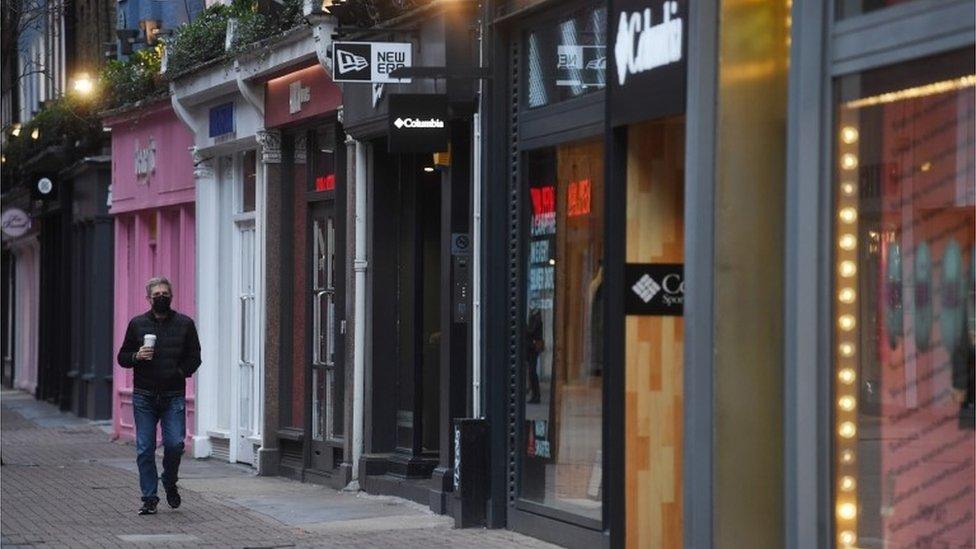
- Published30 December 2020
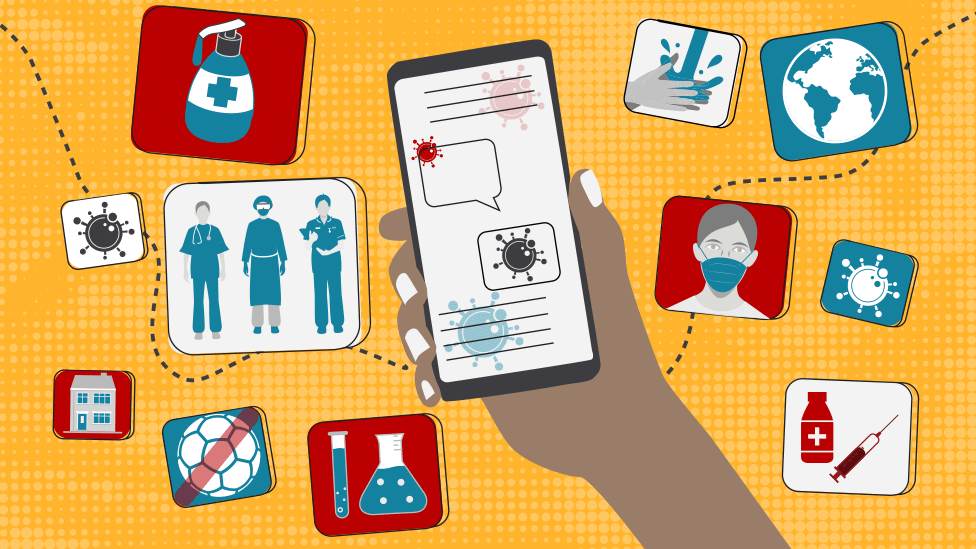
- Published1 July 2022

- Published17 December 2020
